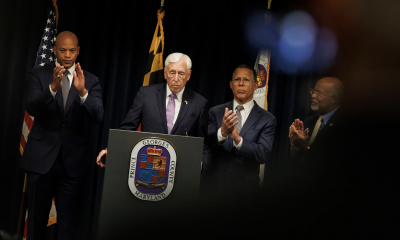Financial
DC Allen and Ken Flick: Partners in life, business and LGBT community growth
D.C. duo pioneered a local gay business while empowering advocacy groups
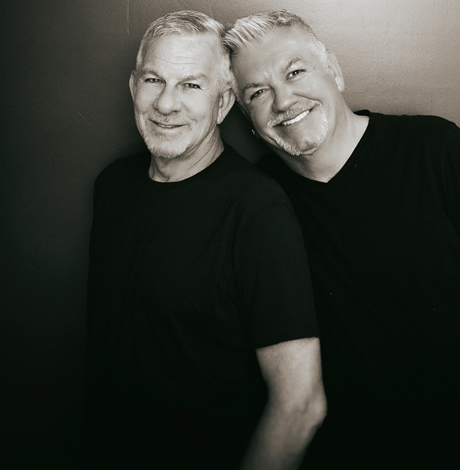
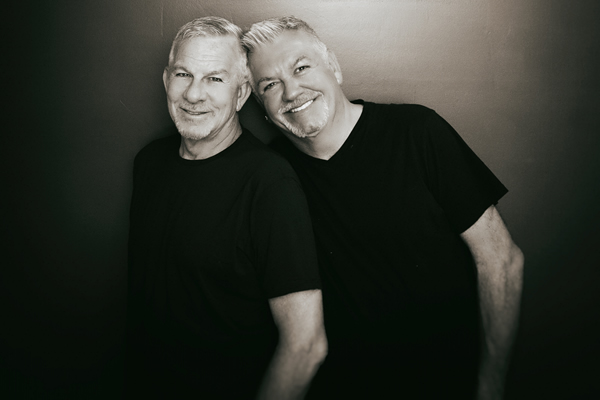
DC Allen, on right, and Ken Flick have contributed to the development and growth of a broad and diverse range of local and national LGBT groups.
As the Washington region celebrates the annual Capital Pride parade and festival this weekend, the contribution that D.C. businessmen and Crew Club founders DC Allen and Ken Flick have made to the growth and development of the LGBT community in the nation’s capital is particularly noteworthy.
Flick and Allen, partners in life and business, highlight through their exemplary leading role a legacy of gay business owners who have fueled local advocacy groups, community-building initiatives, and direct service projects.
The entrepreneurial duo, a longtime couple that married at the District courthouse in 2012, has quietly and consistently contributed to the development and growth of a broad and diverse range of local and national LGBT groups of all types and sizes.
During the past two decades, the continuing financial benefactions of Allen and Flick – on behalf of multiple business ventures – have totaled nearly $650,000 in direct funding.
Co-owners of the Crew Club, a gay-oriented gym and spa located in the bustling Logan Circle neighborhood at 1321 14th St., N.W., south of P Street, Allen and Flick launched the business in 1995. At the time, the now-bustling commercial area was a desolate strip of largely vacant and underutilized buildings with scant enterprise destinations. Allen recalls a local resident stating at a community meeting during the early days of operation, “I’ve never seen so many men in suits in the neighborhood.”
Also distinguishing the venue from its inception and reflected in a major recent refurbishment is the attractive interior design, high-end appointments, comfortable ambience, signature attention to detail, and patron service standards at the well-run and award-winning facility. The Crew Club has earned a national distinction for offering a full-range of amenities and representing the highest hallmarks of quality within the industry.
Flick, who primarily manages the administrative aspects of the business and other enterprise engagements from the couple’s Fort Lauderdale home when not at their D.C. residence, shares the warm gregariousness and easygoing manner for which the couple is known.
A Washington-born native who grew up in suburban Maryland, Flick earned an undergraduate degree at Georgetown University and master’s of Urban Planning from the University of Virginia. He worked at the Maryland Department of Transportation for more than 20 years and served as state liaison to the Washington Metropolitan Area Transit Authority beginning with the creation of Metrorail in the 1970s, also working with the region’s Council of Governments.
Allen, who cuts an outsized stature with an even bigger personality, grew up in the Boston suburbs, where he studied hotel management. He worked in the restaurant and bar industry in both Boston and Manhattan, the latter while achieving success – and prominent theater, musical and movie roles – as a New York actor, singer and dancer.
After subsequently opening a coffee shop with friends in Boston, a series of brutal gay bashings in the Fenway cruising area angered Allen and led him to open a social club with a gym and spa. Inspired by attending a Quentin Crisp lecture regarding his being gay at a time in history when it was dangerous to be so, Allen discerned a community need for a social place and a center for community HIV education, as he had seen throughout Europe. “I wasn’t going to let anyone stop me,” Allen recalls, “We needed a place to go.”
It was this motivation, and a move to D.C., that prompted the Crew Club development as “an activist and community supported space with a mission to build a positive view of gay men and their sexuality,” Allen says.
The Crew Club has long been committed to working for a safer and healthier local gay community, providing on-site testing for HIV, syphilis and other sexually transmitted infections since opening. The business funded, and was instrumental in initiating, a $40,000 advertising campaign in local LGBT media promoting awareness of a resurgence of syphilis. That effort was widely credited with reducing the rate of infections among gay men in the metropolitan area, alongside financing safer-sex Tool Kit distribution expenses.
The Crew Club also supported the formation and development of the award-winning Gay and Lesbian Liaison Unit (GLLU) of the D.C. Metropolitan Police Department, and has forged strong ties with GLLU personnel.
Other beneficiaries represent a comprehensive list of entities engaging broad swaths of community life.
Four years ago, the Crew Club donated $25,000 to the then-expanding and relocating D.C. Center – the Washington area’s LGBT community center – to help build out new offices and meeting space at the Reeves Center a few blocks north of the Crew Club at 14th and U streets. The Center is a project for which Allen, in particular, remains passionate. He is quick to encourage older LGBT residents to include the organization when planning for estate distributions.
In each of the past two years, Casa Ruby has been the recipient of $10,000 donations for its work offering life-saving services and programs to the most vulnerable members of the LGBT community and providing support for transgender individuals. Two months ago, 14 Crew Club staff members toured Casa Ruby when delivering a check to support the facility.
Allen is adamant and articulate regarding what motivates the couple’s charitable giving-back. “It’s an illusion that we have all of our rights and don’t have to fight for them anymore,” he points out, adding that this is the reason that he and Flick have “split our philanthropic activities between service and activism.”
Other recipients have included Food and Friends, the Gay and Lesbian Activists Alliance (GLAA), Us Helping Us, the D.C. government’s Office of GLBT Affairs, and Whitman-Walker Health. They have also lent their support to Team D.C., D.C. Sentinels Basketball Team, Federal Triangles Soccer Club, We Are Everywhere Bowling League, D.C. Gay Flag Football League, Gertrude Stein Democratic Club, Reel Affirmations, Miss Adams Morgan Pageant, Centaur Motorcycle Club, Federation for All D.C. Families, and the Imperial Court of Washington, D.C.
Their munificence also extends to national LGBT organizations such as the NAMES Project and AIDS Memorial Quilt, Lambda Legal, CenterLink, Stonewall Museum and Library, National LGBTQ Task Force, and SAGE Advocacy and Services for LGBT Elders. Allen and Flick also support organizations in the Fort Lauderdale area, where they maintain a home, including SunServe, Equality Florida, the Gay Men’s Chorus of South Florida, Our Fund, and the Pride Center of South Florida.
Allen has been presented the Distinguished Service Award by the Gay and Lesbian Activists Alliance, the Distinguished Service Award by the D.C. Center, and an Outstanding Volunteer Service Award by Brother, Help Thyself
Allen was the recipient of the Capital Area Gay and Lesbian Chamber of Commerce Business Leadership Award in 2012. He received the Washington Blade “Best Business Person” designation in 2014.
Crew Club was also named “Best Place to Meet Men Other Than Grindr” two years ago. “We’re retro in that regard,” notes Allen, “seeking human interaction, battling to be sex positive and promoting healthy behaviors.”
Additional information on the Crew Club is available online at CrewClub.net.
Mark Lee is a long-time entrepreneur and community business advocate. Follow on Twitter: @MarkLeeDC. Reach him at [email protected].
Real Estate
Child- and pet-proofing your home for the holidays
It isn’t about being perfect but about being prepared

The holidays are meant to be joyful, cozy, and full of laughter — but if you have young children or pets, they can also feel a little chaotic. Twinkling lights, shiny decorations, guests coming and going, and tables full of tempting food can turn your home into a wonderland of curiosity and mischief. The good news? With a little thoughtful planning, you can keep the holiday magic alive while making your home safer for everyone who lives there.
There’s something oddly comforting about movies where animals go to war with holiday decorations, turning carefully strung lights and perfectly placed ornaments into chaos. Whether it’s a mischievous dog tangled in tinsel or a curious cat launching a full-scale assault on a Christmas tree, these scenes tap into a universal experience for pet owners.
The humor comes from the contrast: the human characters are trying to create warmth, tradition, and picture-perfect cheer, while the animals see the decorations as toys, obstacles, or personal enemies. The resulting destruction — trees tipping over, ornaments shattering, lights blinking out—feels exaggerated but relatable, especially during the already hectic holiday season.
Let’s start with decorations because they tend to be the biggest attraction. Ornaments sparkle, garlands dangle, and everything seems designed to be touched, pulled, or tasted. If you have little ones or pets, consider placing your most fragile ornaments higher on the tree and using shatterproof options on the lower branches. Tinsel and ribbon may look festive, but they can be dangerous if swallowed, so skipping them or keeping them well out of reach is a simple way to reduce risk without sacrificing style.
Holiday lights are another favorite fascination. Before hanging them, take a few minutes to inspect each strand for frayed wires or broken bulbs. Secure cords along walls or behind furniture so they’re harder to grab or chew and unplug them when you leave the house or head to bed. Not only does this help prevent accidents, but it also gives you one less thing to worry about during a busy season.
The Christmas tree itself can become a focal point for exploration. Make sure it’s sturdy and well-anchored so it doesn’t tip if a toddler tugs on a branch or a pet decides to investigate. If you use a real tree, cover the water base since tree water can contain additives that aren’t safe if consumed. For artificial trees, keep an eye out for loose pieces or needles that could become choking hazards.
Food is a big part of holiday celebrations, and it’s also one of the most common sources of trouble. Many traditional treats—like chocolate, grapes, raisins, alcohol, and foods containing xylitol—are dangerous for pets. Keep plates and serving dishes up high, secure the trash can, and gently remind guests not to slip pets or kids “just a little bite” without checking first. For children, be mindful of hard candies, nuts, and small treats that could pose choking risks.
Candles and fireplaces add warmth and charm, but they deserve extra caution. Flameless candles are a wonderful alternative if you want ambiance without worry. If you do use real candles, place them well out of reach and never leave them unattended. Fireplaces should always have a sturdy screen or gate, especially with crawling babies or curious pets nearby.
Holiday gatherings bring wonderful energy into your home, but they can also create new challenges. Doors opening frequently make it easier for pets to slip outside, so consider setting up a quiet, comfortable space where they can relax during busy get-togethers. This can help reduce stress for them and give you peace of mind. For children, stair gates, locked cabinets, and clear boundaries can help prevent accidents when there’s extra excitement in the air.
New toys and gifts are another thing to watch closely. Packaging, twist ties, plastic wrap, and especially button batteries should be cleaned up promptly. These items are easy to overlook in the excitement of gift-opening but can be dangerous if swallowed. Taking a few minutes to tidy up as you go can make a big difference.
Lastly, try to keep routines as steady as possible. The holidays naturally disrupt schedules, but familiar mealtimes, naps, walks, and bedtime rituals help children and pets feel secure. A calmer household often means fewer accidents and a happier experience for everyone.
At the end of the day, child- and pet-proofing your home for the holidays isn’t about being perfect but about being prepared. A few small adjustments can help you relax, enjoy your guests, and focus on what truly matters: creating warm, happy memories with the ones you love. When your home feels safe, the holidays feel even sweeter.
Valerie M. Blake is a licensed Associate Broker in D.C., Maryland, and Virginia with RLAH @properties. Call or text her at 202-246-8602, email her at [email protected] or follow her on Facebook at TheRealst8ofAffairs.
Real Estate
In real estate, trust the process
With rates coming down, we could see spring surge in buyers
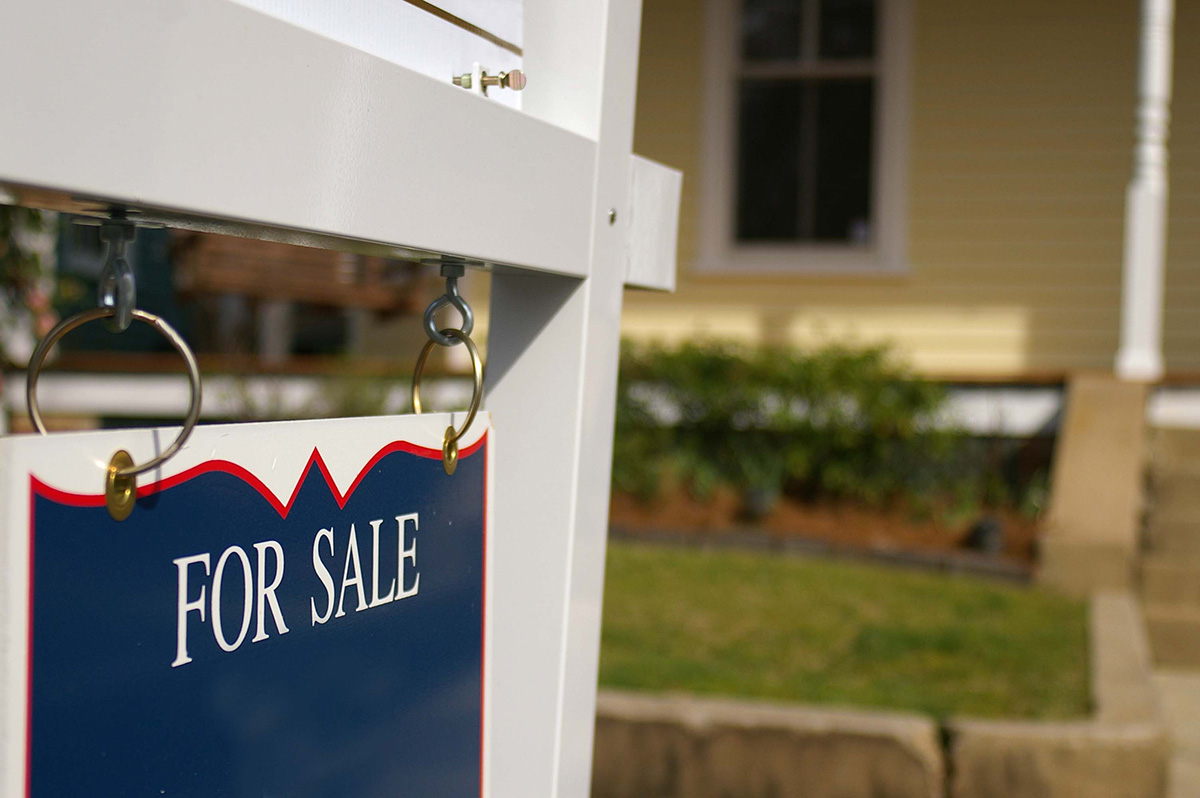
The average 30-year mortgage rate is falling, little by slowly. With predictions that the rate will continue to adjust downward in the next year or two, there may be a busier spring market than we have seen in the last few year, especially for the DMV market, which has been reeling from thousands of layoffs this past year. The frenzied activity resulting from interest rates close to 3% for some borrowers will probably not occur; however, this spring could add up to be a few notches busier than the last.
What does this mean for buyers and sellers? Lender Tina Del Casale with Waterstone Mortgage says she has seen “low to mid 6’s as the average for conventional loans.” If rates continue downward into the 5% range, there may be more activity than we saw in the last year or two. This could release a little bit of pent up demand.
Many buyers will have found that for whatever reason, their current home is not meeting their needs. Sellers may want to finally take the plunge and put a for sale sign in the yard and online, now that they might find a more reasonable rate on their next home. This winter can be an opportunity to assess financial situations, home conditions, and optimize one’s chances to have a sale with more agreeable terms, or put one’s best foot forward in an offer. In addition to checking with a lender or favorite handy person, let’s review what sellers and buyers typically spend their energy negotiating while enjoying the lovely process called “going under contract”:
- Timelines – Sellers might want to have their house solidly under contract (papers signed, thumbs up from the lenders, all inspection items decided upon and settled) so that they can put an offer down on a new home, and then negotiate that timeline with the other sellers. Remember, making a move is not only about the buyer taking possession of a new home, but also about the sellers figuring out their situation as well.
- Sale Price – unfortunately for buyers, in the eyes of most sellers, “money talks.” So, in a non-competitive situation, a seller might be happy to just get one offer at a price that was within the desired range. As soon as another interested buyer enters the equation, it can become a little bit like RuPaul’s Drag Race, and one will have to lip sync for one’s life, honey! And only one buyer will get to hear the words, “condragulations!”
- Tone/Vibes/Energy in the Room – Remember: Human beings are emotional creatures. All of us have feelings. And all of us want to put energy into situations where we feel appreciated, where a level of self-awareness exists, and a sense that each side is trying one’s hardest to act in good faith. The best transactions I saw were where a little grace was the “grease on the wheels” of the transaction. Occasionally, a buyer had cold feet and wanted to see the unit a few more times before the settlement date, or a seller forgot to scrub the bathroom with a little extra elbow grease before the settlement date. Life happens; misunderstandings can occur. A wise therapist once said: “You don’t have to like it, but can you allow it?” The tone of one or both parties in the transaction can be what seals the deal, or results in one party exiting the contract. (In the case of the dirty bathroom, the seller left a check with the title company for the buyer to pay a housekeeper to come clean what they couldn’t.)
Joseph Hudson is a referral agent with Metro Referrals. He can be reached at 703-587-0597 or [email protected].
Real Estate
Signs you’ve outgrown self-management of your D.C. rental
Keeping up with local regulations is a struggle
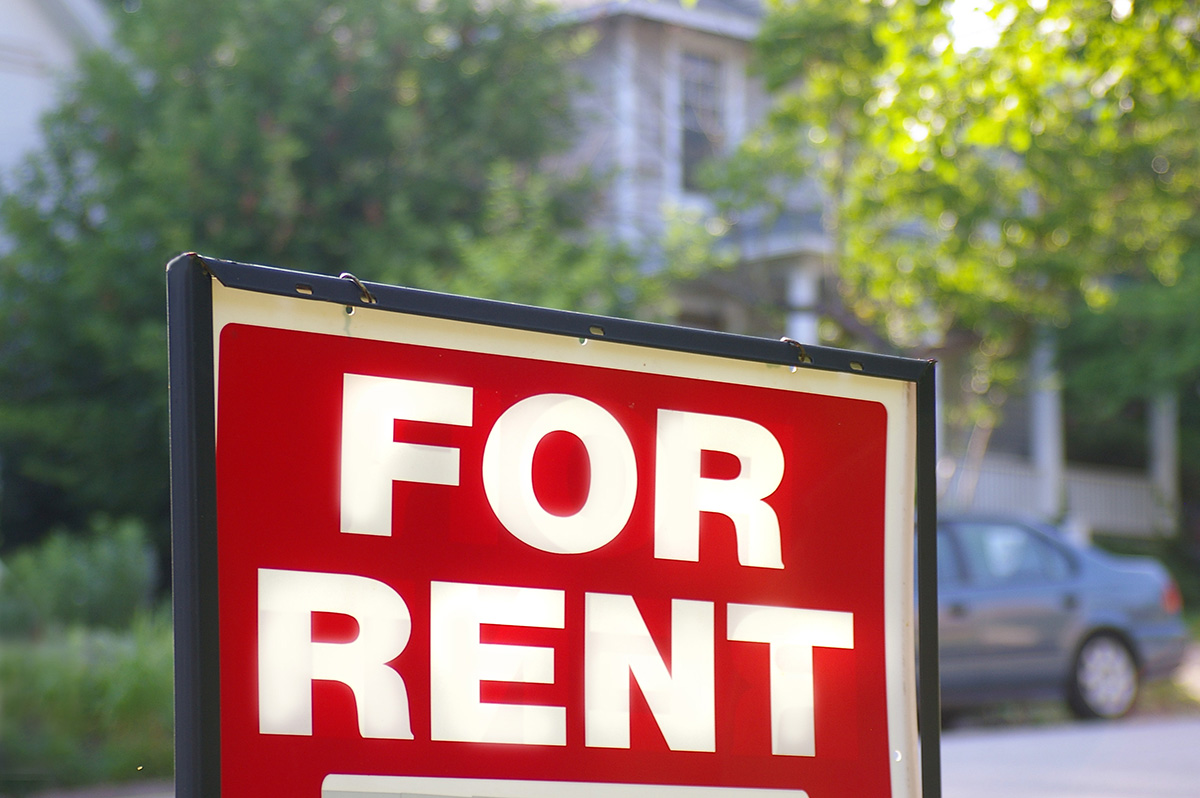
According to rental market statistics from RentCafe, Washington, D.C., remains at the top of the most popular cities for rental properties. With a strong rental market and a growing population, success should be second nature to real estate investors and rental property owners in this area.
As a self-manager of your own rental, if you’re not enjoying the profitability and the earnings that this market can provide, it might be time to look for professional management.
There are certain signs that show property owners have outgrown self-management. We’re exploring those today, and inviting DIY landlords to consider the benefits that come with a partnership with a professional property management company in Washington, D.C.
Washington, D.C., is known for having a complex and ever-changing regulatory environment. There are strict tenant rights, rent control laws, and specific rules related to property maintenance such as mold, lead based paint hazards, among others. The Rental Housing Act of 1985 is strictly enforced, and under this program, there are specific rules regarding rent adjustments, dispute resolution, and eviction protections.
Fair housing laws need complete compliance, security deposits have strict timelines, and habitability standards are in place to ensure tenants are living in a home that’s safe and well-maintained.
Staying on top of these rules can be time-consuming and difficult. Violating even a small regulation unintentionally can result in fines or legal action. It’s critical to stay compliant, and if you find yourself struggling to keep up with the evolving laws and regulations, it’s a clear sign that you may need professional help. Property managers can reduce the risk and liability of making a legal mistake.
Financial Returns are Underwhelming
A lot of self-managing landlords choose to lease, manage, and maintain their own properties because they don’t want to pay a management fee. We get it. Keeping more of your money seems like the best way to increase profitability.
But, here’s the reality of it: property managers can help you earn more and spend less on your investment, increasing your earnings and your ROI. In fact, a good property manager can often earn enough additional net revenue for the owner to pay for that fee over a year.
Property managers are experienced at maximizing the financial performance of rental properties. We can help:
- Optimize rental income
- Reduce vacancy rates
- Lower maintenance costs through established vendor relationships
- Recommend improvements for higher values
Ultimately, a good property manager will ensure that your property is being run efficiently. We will use our expertise to ensure your property is earning what it should.
Maintenance and Repairs Are Taking Up Too Much Time
Maintenance challenges are not unique to self-managing rental property owners. We deal with them, too, as professional property managers. We respond to plumbing issues and appliance malfunctions, we take calls in the middle of the night when a sewer is backing up, and we work hard to protect properties against deterioration and general wear and tear.
This can be overwhelming, especially when it comes to finding vendors and service professionals that are both affordable and provide quality service. Plumbers, electricians, HVAC technicians, and even landscapers and cleaners are in high demand in Washington, D.C. But maintenance at your rental property cannot wait. It’s essential to the value and condition of your investment as well as to the product you are selling.
It’s time to work with a professional property manager if you’re having trouble finding vendors or if you’re struggling to keep up with maintenance requests. We have systems for emergency responses, routine repairs, and preventative services.
Tenant Screening Is Becoming More Difficult and Time-Consuming
Finding good tenants is one of the most critical aspects of rental property management. But in our home of Washington, D.C. we have one of the most regulated rental markets in the country. The tenant screening process has become increasingly complex, highly restricted, and time-intensive.
Many property owners are surprised to learn that there are more limitations than ever on what can be screened, what information can be used in making a decision whom to rent to, and how screening decisions must be documented. Federal and local laws tightly regulate the use of credit histories, criminal background records, income verification, and even eviction records. Staying compliant is not optional. Failure to follow these rules can open the door to discrimination claims, administrative complaints, substantial fines, or even lawsuits.
That’s why rushing or relying on outdated methods can easily result in selecting the wrong resident or worse, unintentionally violating DC’s Human Rights Act or federal Fair Housing laws.
Problematic tenants often become evident only after move-in: lease breaks, chronic late payments, noise complaints, and property damage. When these patterns appear repeatedly, it is often a sign that the screening process is not sufficiently structured.
Why Professional Screening Matters
Professional property managers have systems in place to perform thorough, legally compliant screening while avoiding oversteps that could violate the regulations. Professional property managers use trusted screening platforms and follow written processes that keep owners protected and ensure fairness for applicants.
Columbia Property Management’s screening process includes:
- Credit Report Review
Evaluating credit patterns, payment reliability, and debt load while complying with restrictions on how data can be used. - Rental History Verification
Contacting prior landlords and reviewing national eviction databases—keeping in mind that some jurisdictions like the District of Columbia limit how far back eviction data can be seen, must less considered. - Background ChecksReviewing public records in a manner consistent with DC’s Human Rights Act and federal guidance on criminal history usage. Not all criminal records can be considered in rental decisions, and timing rules often apply.
- Income & Employment Verification
Confirming applicants can afford the rent and other monthly expenses based on their income, without ruling out certain income in a discriminatory way (e.g., vouchers, subsidies, or lawful alternative forms of income). There are many intentional steps conducted by professional property managers under a framework that ensures decisions are based on objective criteria, applied consistently, and fully aligned with the latest federal and DC regulations.
Your Property Is Sitting Vacant for Longer Periods
While current rental market dynamics are starting to show the effects of federal workforce layoffs and the worsening local economy, the vacancy rate in Washington, D.C., is relatively low, compared to the national average. According to a news report from WTOP, the local vacancy rate is just 6%, and there are an average of seven applications for every available rental unit.
A vacant rental property can quickly become a financial drain. Whether you own a condo near Dupont Circle or a single-family home in one of Capitol Hill’s neighborhoods, every day your property sits empty means lost income. While the D.C. market is generally competitive, the reality is that there are always fluctuations in demand based on seasons, neighborhood desirability, and even economic trends.
If you’re struggling to fill your rental quickly, it might be a sign that you need to re-evaluate your approach. An experienced property management company has a marketing strategy in place to keep vacancy periods as short as possible. From professional photos and listings to leveraging established networks, they can help ensure that your property is rented quickly, reducing the amount of time it sits vacant.
While managing a rental property in Washington, D.C., can be rewarding, it’s also challenging. As your property portfolio grows or the demands of your life or the demands of being a landlord increase, it’s helpful to recognize when it’s time to step back and let a professional handle the day-to-day tasks.
From navigating complex local regulations to ensuring your property remains occupied and well-maintained, there are many reasons why rental property owners in Washington, D.C., outgrow self-management. If any of these signs resonate with you, consider partnering with a property management company like ours to ensure that your rental investment continues to thrive without the stress and burnout of self-management.
We’d love to be your Washington, D.C., property management partner and resource. Please contact us at 888-857-6594 or ColumbiaPM.com
Scott Bloom is owner and Senior Property Manager, Columbia Property Management.
-

 Sponsored4 days ago
Sponsored4 days agoSafer Ways to Pay for Online Performances and Queer Events
-

 District of Columbia3 days ago
District of Columbia3 days agoTwo pioneering gay journalists to speak at Thursday event
-

 Colombia3 days ago
Colombia3 days agoBlade travels to Colombia after U.S. forces seize Maduro in Venezuela
-

 a&e features3 days ago
a&e features3 days agoQueer highlights of the 2026 Critics Choice Awards: Aunt Gladys, that ‘Heated Rivalry’ shoutout and more

